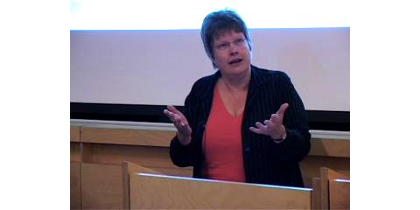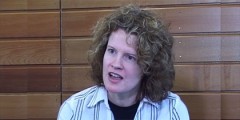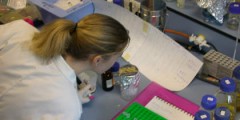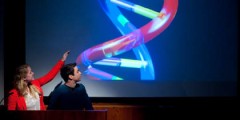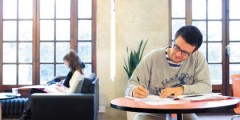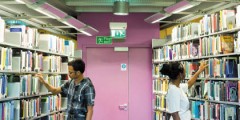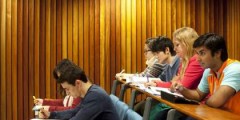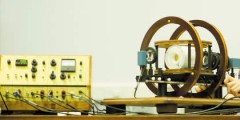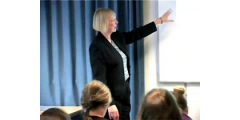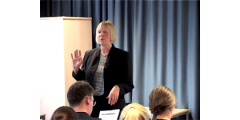Jude Carroll on plagiarism
January 17, 2006
Video >> Jude Carroll: “And what’s interesting about the question “Are any of these people plagiarists?” is actually that question is “What do you mean by the words that are in this definition?”. And one of the things that I think is very interesting is that the definition of plagiarism is not a platonic ideal …
The good, the bad and the ugly: students’ experiences of group projects
Nicola Gray: “Background: Group projects have the potential to engage a large cohort of students in exercises that complement other aspects of the course. Effective use of resources is an important driver for course organisers. For pharmacy students, the importance of team-working in health care means that these exercises could provide skills to benefit their …
Practical molecular biology for visually impaired students
October 29, 2005
This illustrated report shows the simple adjustments that allow Emily (who has cone-rod dystrophy giving her very little detailed vision but some colour perception) to carry out her own lab work. Each Visually Impaired (VI) student has specific needs but adjustments here may be of use to them. This was originally written in 24 point …
Dealing with information overload: student teach thy self
September 29, 2005
Ian Spendlove: “The Biomedical Sciences are subjects that are or appear to be heavily dependent on a large volume of information with an apparent emphasis on facts and content. Traditional didactic teaching approaches are common practice in these subjects. In order to address the potential for information overload, avoid student disengagement and stave off embarrassing …
Creativity and criticism: spotting a gap and motivations to change
June 27, 2005
Peter Howarth: “I joined the Department in 2000 and as part of my teaching, began a module on Modern Poetry. I realised that the students had to develop an understanding of the shape and form of poetry, and how form affects meaning; students read poetry as if they were reading a novel, and when asked …
Did curiosity do anything more than kill the cat? The place of curiosity in Higher Education
September 14, 2004
Boyan Bonev, Catherine Cowley, Michelle Hall, Henrik Nilsson, Frazer Pearce, Theo Stickley and Sarah Westwater-Wood: “The University of Nottingham’s, Learning and Teaching Strategy for 2002-2005 states that the University is committed to excellence in the advancement and communication of knowledge. One of the ways in which it aims to advance knowledge is by “equipping students …
The acoustics of teaching facilities: a case study of the University of Nottingham
Peter Rutherford: “The acoustical design of lecture theatres, seminar rooms and classrooms is of paramount importance in meeting the required speech intelligibility for delivering effective teaching, irrespective of the teaching style employed. Given the nature of universities delivering content, new information is presented at such intensity that it is essential that speech intelligibility meet the …
Teaching a physics laboratory module to blind students
July 31, 2004
Janette Dunn and Lara Meredith: Background: “Disability Legislation finally made its way into Higher Education in September 2002 in the form of the Special Educational Needs and Disability Act (SENDA or Part IV of the Disability Discrimination Act). “With this change there was a need to improve staff awareness of the ways they could provide …
The importance of visual aids
July 9, 2004
Video >> Do Coyle: “Throughout the visuals have got to be, well any of the aids you would use have got to be relevant. But now, with being able to transport images from the Internet, for example, we’re no longer forced into scruffy overheads, transparencies and so on. We can actually use colour and image …
Beginning a session with an exercise
Video >> Do Coyle: “OK. Could you, first of all, look inside your pack and find the vocabulary list. “Now as future language teachers you’re all going to be dealing with vocabulary. So what I’d like you to do first of all is to take the vocabulary list, I’m going to give you 3 minutes …

